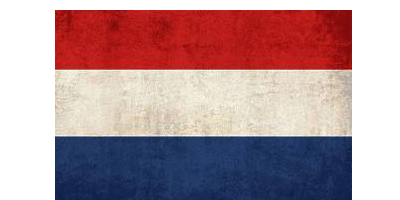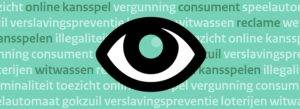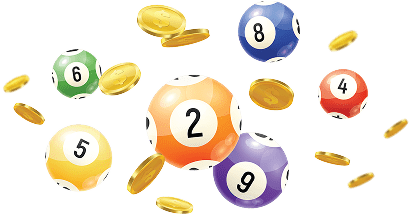Online gambling in the Netherlands

Though the Netherlands has a reputation as a country where many things are permissible that you cannot do elsewhere, online gambling was previously prohibited and people in the country were made to wait a long time for the Remote Gambling Act (KOA) to be passed into law.
The KOA was due to be passed in July 2020 but numerous delays pushed the enactment back until it finally became legal to gamble online in the Netherlands in October 2021.
Rene Jansen, chairman of Dutch regulator Kansspelautoriteit (KSA), told SBC News: “Today, an important step has been taken with the opening of the legal market for online games of chance.
“Recent years have shown that simply banning online gambling was no longer possible. Legalisation and regulation make it easier to protect consumers against abuses.”
Why the Netherlands opened up to online gambling

In short, the Netherlands has a huge and previously untapped online gambling market.
Gambling regulations effective in the Netherlands over the last half-century were drawn up in 1964, and it was not until 2012 and the establishment of the KSA that updated legislation was planned with the intention of incorporating online gambling into the country’s licencing.
The potential to bring money into the country was a big part of the reason to open up online gambling to the population, along with a desire to eliminate illegal online gambling operations.
The long wait for regulation has not stopped people from gambling online, and initial estimates placed the size of the Dutch online gambling market at €580 million in terms of gross gaming revenue, but once official figures from licenced companies became available it emerged that the market’s value is a staggering €814 million!
For the Dutch parliamentarians and gambling authorities, the huge size of the market was a powerful driver of the move to regulate it and allow people to start using online casinos and bingo websites, and the move also takes players away from illegal operators.
Having issued online gambling licences to 11 operators, the KSA set about disrupting the illegal online gambling market by issuing fines and enforcements to unlicensed operators and carrying out widespread monitoring and investigation of the market.
Entain and Kindred were among the first international operators to pull out of the Dutch market after they were hit with enforcements of €5million and €12million, respectively, by the KOA Act.
When asked about the clampdown on unlicensed operators, Jansen said: “The fact that many players switched from illegal to legal providers is good news.
“After all, the most important objective of the Remote Gambling Act is to channel players from illegal to legal offerings.
“Legal providers can be supervised, so that players are assured of a fair game, correct payout and – above all – sufficient attention to addiction prevention.”
What players need to know
For online bingo players, casino lovers and all other gamblers in the Netherlands, the formal legislation and introduction of online gambling licences is good news, and the details of the Remote Gambling Act are well worth taking a look at if you’re planning to play at sites licenced in the country.
The latest updates to the legislation shortly before it came into law included the recording of players’ gender no longer being required upon registration with an operator – a very forward-thinking move that will help non-binary and gender non-conforming players to feel more welcome.
Rectifying payment issues is another area that the legislation focuses upon, extended protection for players beyond problems caused by “the consequences of a technical malfunction of the gaming system”, ensuring sites must show more accountability when payments are not fulfilled.
Players with gambling problems were a focus of the regulations, and under the KOA Act third parties including family members, gaming operators and employers can ask for individuals who are suffering from problem gambling to be added to a self-exclusion database known as the Central Exclusion Register, or CRUKS.
Licenced operators in the Netherlands will need to check that all new players who register at their sites are not listed at CRUKS, as the gambling authorities aim to prevent financial and social damage to players. The KSA indicated that CRUKS should be used as a final resort when other measures to protect players have been explored.
Operators in the Netherlands
The operators to receive the very first Dutch online gambling licences were:
| Betent | |
| Bingoal | |
| FPO Netherlands BV | |
| Holland Casino | |
| ToTo Online BV |
…all of which are based in the Netherlands.
They were followed by international competitors who were granted licences, including:
Finally, JOI Gaming Limited was added to the list of 11 pioneering licence owners who will seek to create a prosperous and safe online gambling ecosystem throughout the country.
These 11 firms have the opportunity to become established before other competitors gain approval from regulators, who are reportedly setting a high bar when it comes to the required standards of licence owners.
The Dutch gambling authorities have been proven to be strict enforcers of their own rules in the past, having banned big industry players like Unibet and Betfair for several months after those companies broke rules prohibiting the use of .nl domains by unlicensed sites.
The newly licenced Dutch online gambling market will be opened to new operators in waves, and it is anticipated that the most famous names in online bingo, casino and betting will be doing all they can to gain access to the many new customers to be found across the Netherlands.
Limitations and restrictions

Operators taking the plunge in the new Dutch online gambling market are being careful to keep the country’s gambling authorities happy.
Tombola, for example, is insisting that all of its Netherlands-facing affiliates complete a mandatory compliance check before they can join the company’s operations. This check comes at a cost of €1,125 per website, illustrating both Tombola’s commitment to playing by the rules, and the potential value of the Dutch market to affiliates.
Tombola’s Netherlands Country Manager, Marc Smit, confirmed that the compliance check for affiliates is carried out by XY Legal Solutions BV, which issues the KVA seal of approval.
He told SBC News: “We do indeed set the KVA seal of approval as a condition for starting an affiliate program at Tombola. We believe that an affiliate partner should be tested.“
Not all operators are imposing such barriers to affiliates, however, with others carrying out their own compliance checks at no cost to affiliates.
Dutch igaming specialist Jan Westerhoff told Nieuwslog.nl: “Tombola is the only provider with a Dutch KSA licence that imposes this requirement.
“All other operators on the Dutch market, such as bet365 and Betcity, do their own compliance check, and those companies do not charge affiliates for this. As far as we know, Tombola.nl is unique in the igaming industry with their way of forcing affiliates to buy a seal from a commercial consultancy firm.”
Operators seeking to take advantage of the new Remote Gambling Act will need to comply with the KSA’s strict TV broadcasting rules, which prohibit the advertising of any form of games of chance between 6am and 7pm.
Anyone holding a licence must also refrain from targeting Dutch consumers aged 18 to 24, and advertising campaign content is not allowed to suggest that gambling is a means of making money.
The regulations also restrict the way in which operators can use bonuses to encourage players, stating that bonuses cannot be modified to incentivise more play on a particular game market, and nor can they be used as a customer re-engagement tool.
Sportsbook operators launching online products in the Netherlands are not allowed to display in-play wagering options while events are taking place, and all licenced online gambling operators must deliver a quarterly report on all of their advertising activities to the KSA – something described by the KSA as a “board of directors’ obligation”.
Summary of the Netherlands’ online gambling market
This is an exciting time for the Netherlands, which has moved away from a long history of limitations and outdated legislation and towards a brave new future as Europe’s newest regulated online gambling market.
The Netherlands Gaming Market Report that was published in May 2021 stated that the country has a 95 per cent internet penetration rate. This puts the country in a prime position to grow a successful online gambling industry, and the Dutch Gambling Authority’s projections foresee output of €1.1billion by 2024.
This optimistic outlook is bolstered by the KSA’s target of having 80 per cent of operators licenced within three years of the country’s Remote Gambling Act being passed in October 2021, and by the stringent regulations that the authorities will uphold.
Responsible gaming is at the heart of the KSA’s plan, and the Central Exclusion Register, if successful, could become a model for other countries to follow when it comes to protecting the most vulnerable from potential harm caused by problem gambling.
Along with CRUKS, the KSA has put in place strict marketing regulations that operators must abide by, and the regular reporting requirements should ensure that the authorities run a pretty tight ship when it comes to keeping the industry safe and prosperous.
It will be fascinating to see how online bingo takes off among Dutch operators, and there is every reason to believe this country with a rich tradition of games and sporting success will deliver an online industry it can be proud of.
